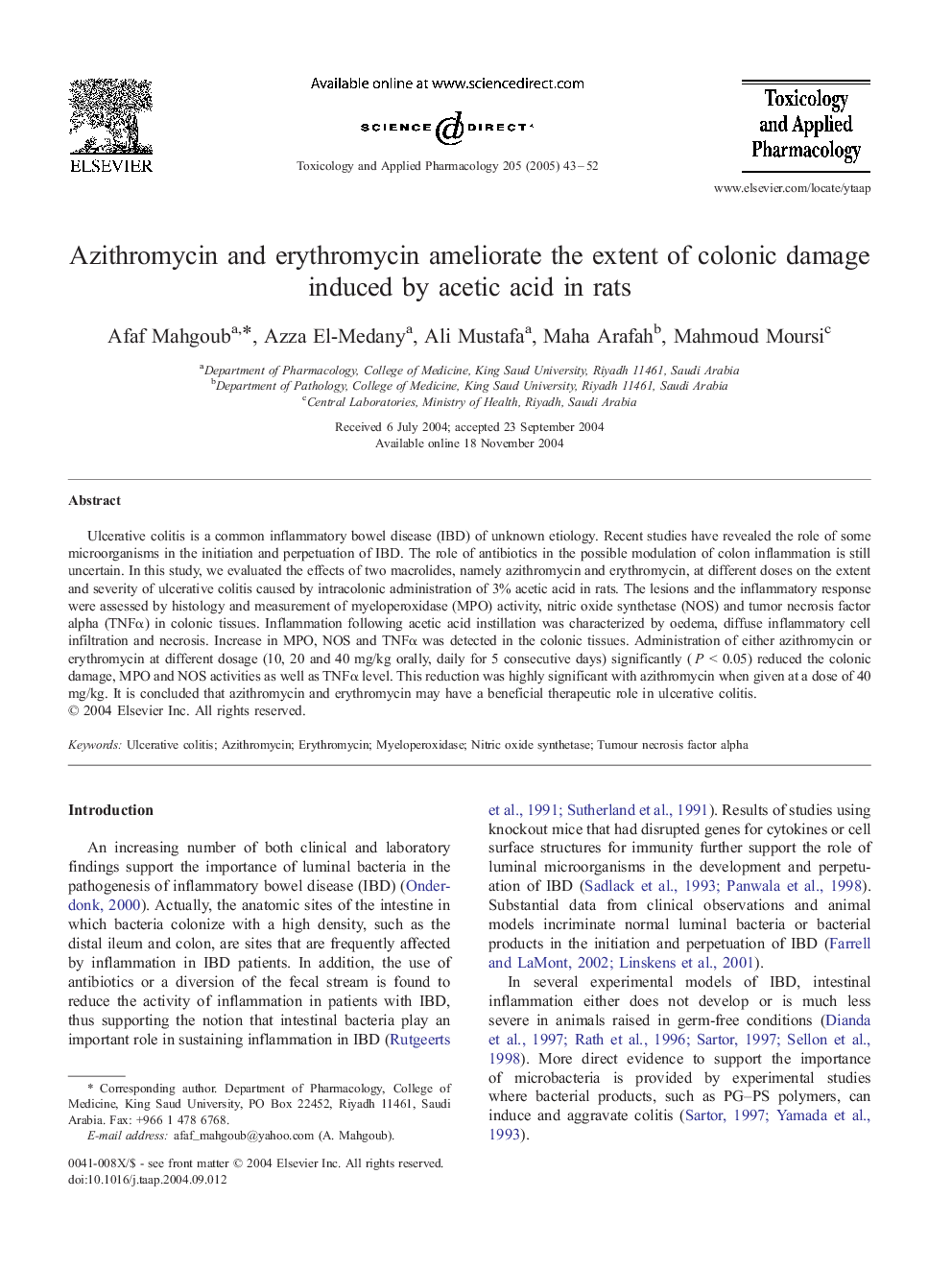| Article ID | Journal | Published Year | Pages | File Type |
|---|---|---|---|---|
| 9017859 | Toxicology and Applied Pharmacology | 2005 | 10 Pages |
Abstract
Ulcerative colitis is a common inflammatory bowel disease (IBD) of unknown etiology. Recent studies have revealed the role of some microorganisms in the initiation and perpetuation of IBD. The role of antibiotics in the possible modulation of colon inflammation is still uncertain. In this study, we evaluated the effects of two macrolides, namely azithromycin and erythromycin, at different doses on the extent and severity of ulcerative colitis caused by intracolonic administration of 3% acetic acid in rats. The lesions and the inflammatory response were assessed by histology and measurement of myeloperoxidase (MPO) activity, nitric oxide synthetase (NOS) and tumor necrosis factor alpha (TNFα) in colonic tissues. Inflammation following acetic acid instillation was characterized by oedema, diffuse inflammatory cell infiltration and necrosis. Increase in MPO, NOS and TNFα was detected in the colonic tissues. Administration of either azithromycin or erythromycin at different dosage (10, 20 and 40 mg/kg orally, daily for 5 consecutive days) significantly (P < 0.05) reduced the colonic damage, MPO and NOS activities as well as TNFα level. This reduction was highly significant with azithromycin when given at a dose of 40 mg/kg. It is concluded that azithromycin and erythromycin may have a beneficial therapeutic role in ulcerative colitis.
Keywords
Related Topics
Life Sciences
Environmental Science
Health, Toxicology and Mutagenesis
Authors
Afaf Mahgoub, Azza El-Medany, Ali Mustafa, Maha Arafah, Mahmoud Moursi,
